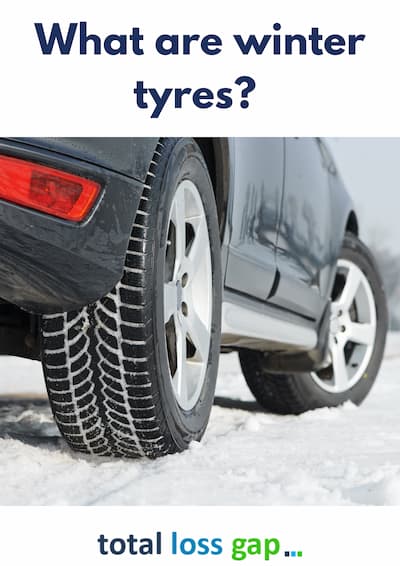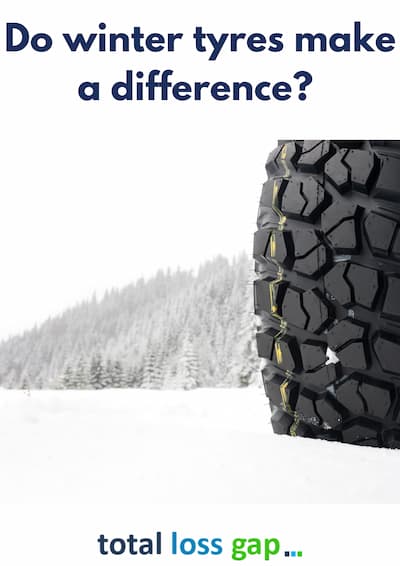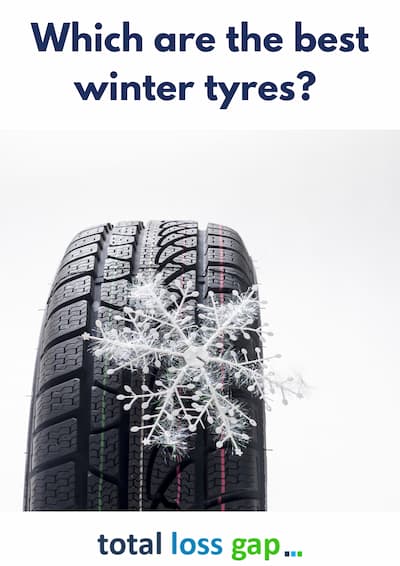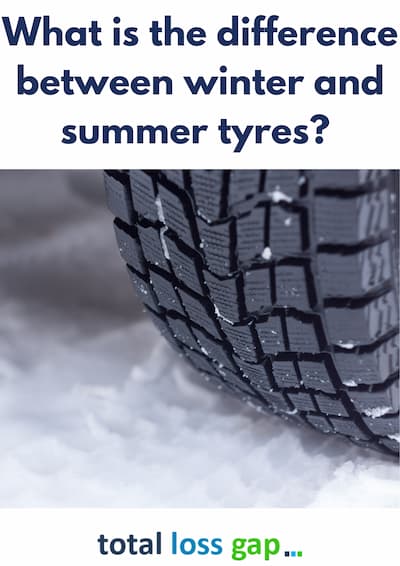Customer Service Lines Christmas Eve 10am-1pm



[ Contact Us ]
Need Help? Calling from a mobile please call 0151 647 7556
0800 195 4926Do you have a question? or need help?
Customer Service Lines Christmas Eve 10am-1pm, Closed 25th, 26th, 27th & 28th
Winter tyres are designed to provide maximum grip in snowy and icy conditions. They use a variety of different tread patterns, rubber compounds, and steel cord constructions to give you the best possible grip when temperatures drop outside.
This guide will explore the benefits of winter tyres for your car, as well as how to make sure you have them installed correctly!
Winter tyres are specifically designed to work better in low temperatures, icy and snowy conditions. They typically have a rubber compound that is made from softer materials than summer tyres or all-weather tyres, which allows the tyre to grip well at lower speeds. This can reduce stopping distance in snow, ice and cold weather. 
If you live somewhere where it snows regularly during winter months (or even if you don't), fitting winter tyres can give you more control and confidence when driving on snow or ice.
There are pros and cons to this.
Winter tyres are specially designed for cold weather. They're made to withstand ice and snow while providing you with a better grip on the road.
Winter tyres also give you more safety by enhancing your braking power in wet or icy conditions and cold temperatures. If it's not safe enough, winter tyres will make sure that you remain under the control of your vehicle at all times by shortening your braking distance.
So, should I buy winter tyres? The answer is: it's up to you!
It depends on many different factors and you can't always predict the weather. If you live in a country where it's known to have cold weather and icy winters, then winter tyres are a good investment for your safety and comfort on the road.
If you live in a country with more mild or even warm weather all year then the need for winter tyres is not a debate.
The answer is yes, they do, in the right conditions. If you're reading this blog post in the winter season then chances are you've already experienced how hard it can be to drive on snow and ice with normal summer tyres. The problem lies within your car's inability to handle these cold weather conditions, not because of its poor design (although some cars come out worse than others). 
Winter tyres are specially designed to tackle ice and snowy weather in the cold conditions of the winter months. They come with different compounds that allow them to provide better grip when compared to normal car summer tyres but still brake well on dry roads too. The reason they work so much better is that each tyre has a lot more sipes (tiny slits), and is made of a softer rubber compound that allows it to be able to grip the road, no matter how bad the conditions are.
Most cars will gain some level of safety by having winter tyres installed. The best type of car for winter tyres is one that normally has summer tyres or all-season tyres fitted as standard, such as a hatchback, estate car, SUV, or four-wheel drive, that may be used in colder temperatures in winter.
There has not been any legislation required to carry winter tyres in the UK due to our generally warmer climate.
In every country, there are individual legal requirements that they should carefully examine.
In Germany or northern European countries such as Sweden, the law requires changes to a winter tyre from summer tyres.
Most people swap from summer tyres from the beginning of October to early Easter, when the winter tyres are removed. Most people do it in the winter when the cold weather starts.
If you consider travelling in the colder weather then it is advisable to check the laws on winter and summer tyres, or if an all season tyre is OK.
There are several specialist winter tyres available in the UK for cold weather conditions. These include: 
You pay more for luxury brands such as Bridgestone Continental, Michelin Pirelli, Goodyear, and Dunlop. But you got what you paid for including durability noise reduction, comfort and wet and dry grip/brake protection. The tyre store says its a competitive landscape among the brands. There is constant technical progress ensuring safer, cleaner, and more eco-friendly roads. These innovations also suggest you can spend more but it also means that you can spend more for those tyres that are good for your car. You are better off not using your own price for your pick of something that you like.
All-season tyres are the goldilocks of tyres: not too hard nor too soft. The tyres are a harder compound than summer tyres that enables better control over the asphalt for warmer weather than winter. Winter tyres will remain the most safe and effective options according to manufacturer Barum. They don't provide the same braking function under extreme driving conditions so Winter tyres are the best option in extreme weather. Continental notes comfort and quiet in moderate weather or with light snow as a good mix of summer and winter tyres.
Winter tyres have higher natural rubber and silica compounds making them stronger and more flexible. This is called winter rubber, or cold weather tyres. 
Another key difference between normal & winter tyre is the tread depths. Normally new tyre thicknesses should range between 7mm-9mm. For all passenger vehicles in the UK, it is required to have at least 1.6 mm in tread depth. Industry specialists recommend changing tyre diameter from 4 mm to 1mm and for winter tyres the wear limit is 3.
The tread pattern on winter tyres reduces aquaplaning risks. The grooves in the winter tyres are wide and deeper giving a stronger grip which can reduce the stop distance.
Retailers like MyTyres, Kwik Fit or ATS Euromaster offer Tyre Hotel Storage. They will fit winter tyres and store those summer tyres for the past winter then swap out.
If you have the space to store them yourself then you need to make sure you store winter or cold weather tyres carefully.
Tyres should be weighed down under the wheels and should be kept in the dark dry environment and not outside - even without cover.
Avoid stacking them as this could damage the sides tyre sidewalls. So do never stack them on top of each other.
The answer is yes, but may not be a good idea.
Winter tyres are specially designed to cope with winter conditions, which means they can be used all year round.
Winter tyres have less durable treads which increases the contact time with the road in warmer conditions.
This leads to greater wear. According to tyre manufacturer Continental, using your winter tyres all year round could reduce their lifespan by around 60%.
Whilst there is not specific law against mixing summer and winter tyres at the same time it is not a good idea. The main problem is that they will give different levels of grip. That will impact the handling and safety of your vehicle.
Stick to winter tyres in the winter and summer tyres for the rest of the year to be safe. Cold weather tyres are not best all year round.
.jpg)
One of the disadvantages is that they can cause more road accidents with cold weather tyres.
They do not grip as well on dry roads and therefore drivers tend to drive slower which in turn reduces their reaction time, making them even less likely to avoid an accident if it suddenly occurred.
This means you might get into more car collisions than normal while using winter tyres throughout winter cold weather.
Another disadvantage of winter tyres is that they are illegal in some countries. For example, if you were to drive through France this winter with your snow tyres on, then there's a chance you could be fined or even arrested for it by police officers passing by while driving their car.
It isn't always enforced but it would definitely cause problems if you were to be pulled over.
Winter tyres are also a more expensive option for car owners as they need replacing each season and therefore can become quite costly, especially if your driving habits include travelling long distances every day or going on road trips during the winter months.
You would have to spend money on new snow tyres each year which could run into the hundreds of pounds.
They also don't look as visually appealing and therefore could affect the resale value of your car if you were to ever decide to sell it.
Some people may not like them because they do not go with certain wheels that have been previously selected and therefore this would be a disadvantage for some potential buyers who might want those specific types of tyres on their car.
There can be a number of misconceptions around winter tyres.
For instance, some people believe that they will lose out on fuel economy as their car would require more power to move with winter tyres fitted but this is actually false and has been proven wrong by tyre manufacturers and independent research groups such as Transport Research Laboratory.
Another myth is the idea that a winter tyre are so much more expensive than a summer tyre, and therefore is it worth the extra cost. Whilst there may be a little difference in price, winter treads have come down quite a bit in recent years. Availability at a range of national tyre retailers has helped drivers save money on fitting winter tyres.
One final myth is that you should only consider changing over from a summer tyre once the temperature goes below 7 degrees Celcius. Some tyre experts say once you have seen 10 degrees breached you should consider changing to cold weather tyres. This is because the daily temperature range could be between 12 degrees in the day and 2 degrees at night. This provides plenty of opportunities where you may be driving in wintry conditions as the temperature falls.
Winter tyres are a great investment for drivers in colder climates. However, they may not suit every driver's needs so make sure to weigh out the pros and cons before deciding whether or not it is worth investing in this type of tyre. Cold weather tyres are not for everyone, nor should they be used all year round.